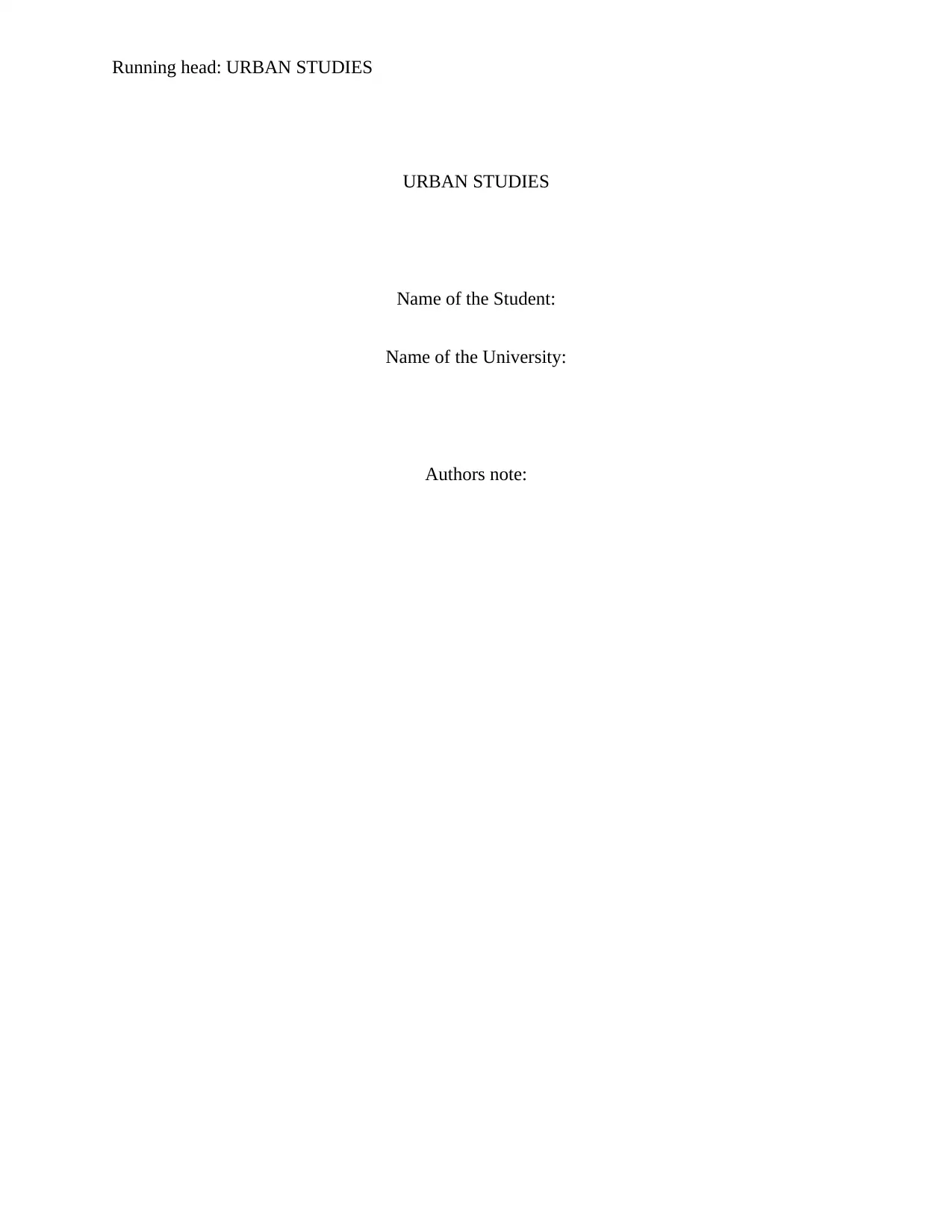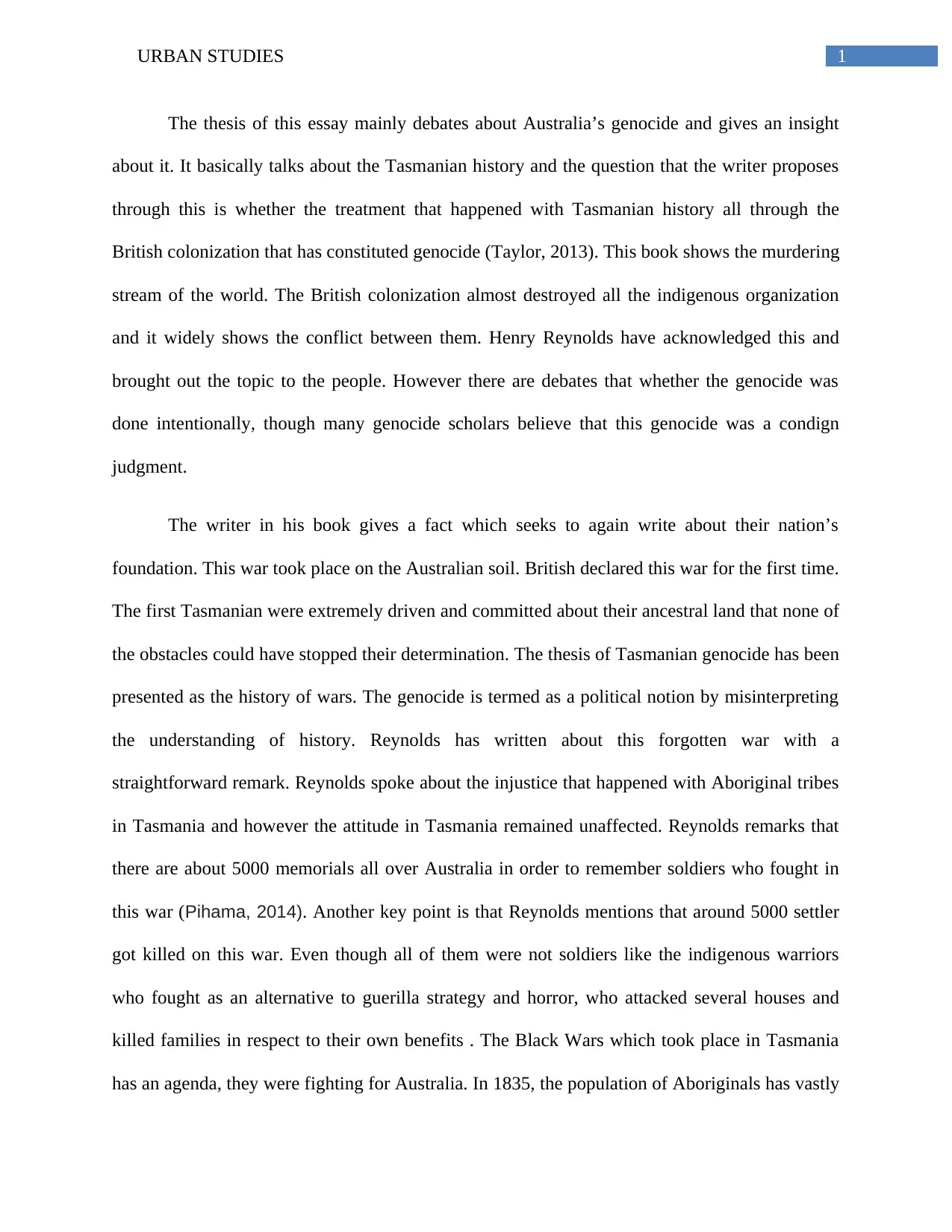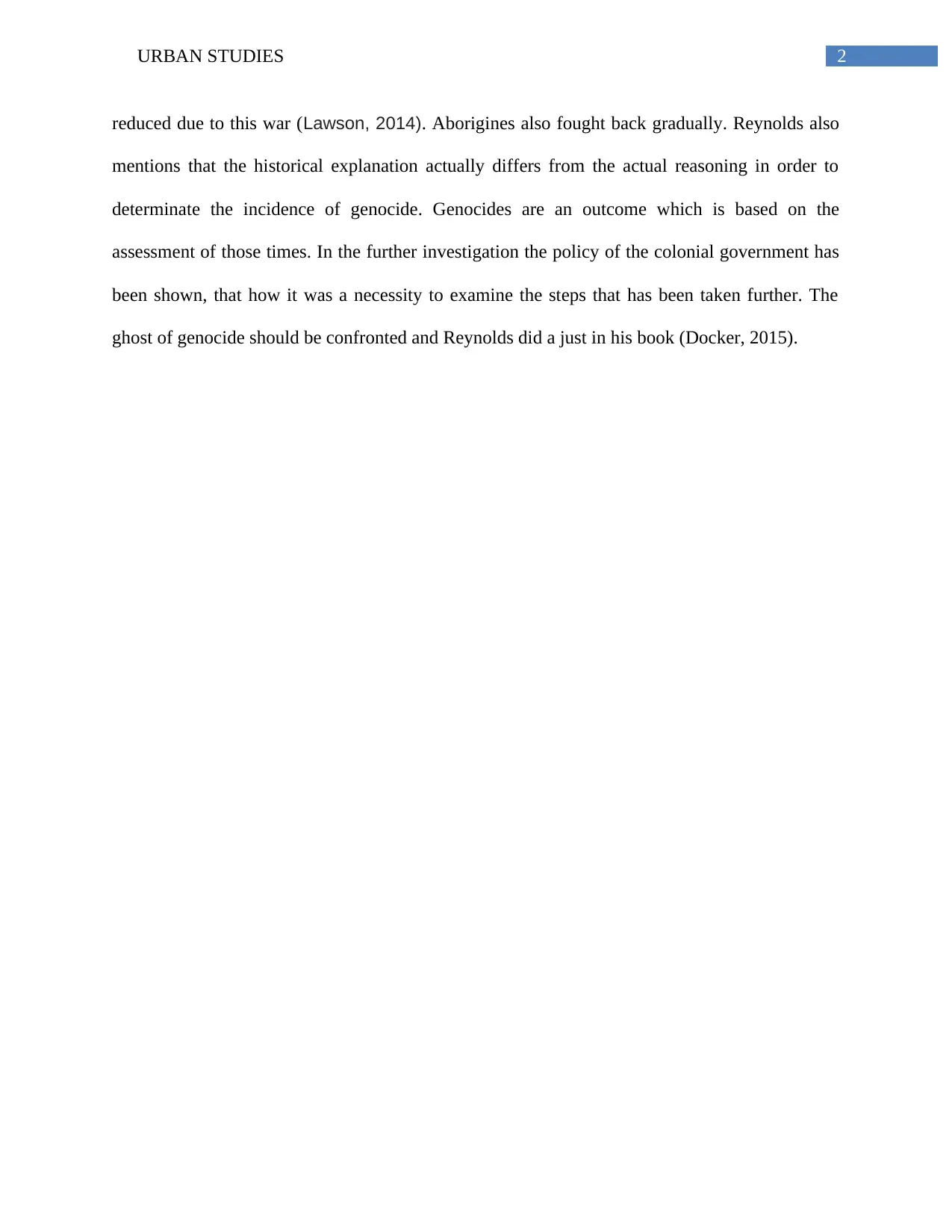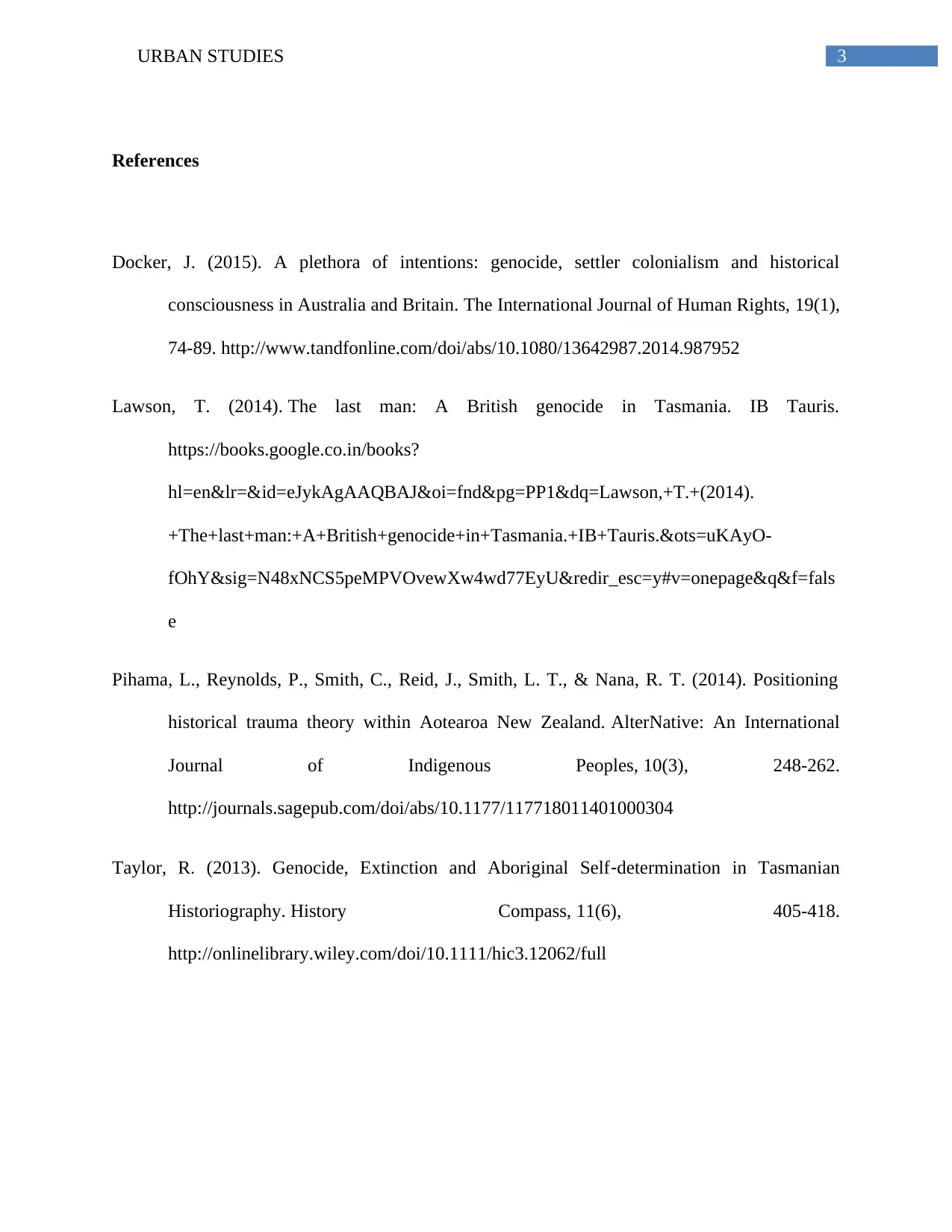Urban Studies Essay: Analysis of Australian Genocide and History
VerifiedAdded on 2020/03/13
|4
|667
|258
Essay
AI Summary
This essay, written for Urban Studies, delves into the contentious topic of Australian genocide, primarily focusing on the historical context of Tasmania and the impact of British colonization. It examines the debates surrounding the treatment of indigenous populations, particularly the Tasmanian Aboriginals, and considers whether the actions constitute genocide. The essay references the work of historians like Henry Reynolds and explores the perspectives of genocide scholars, highlighting the conflict between settlers and indigenous communities, the Black Wars, and the reduction in Aboriginal populations. It also addresses the complexities of historical interpretation and the policies of the colonial government, providing a critical analysis of the events and their lasting consequences. The essay draws on various sources to present a comprehensive overview of the subject, aiming to confront the 'ghost of genocide' and its impact on Australian history.
1 out of 4






![[object Object]](/_next/static/media/star-bottom.7253800d.svg)